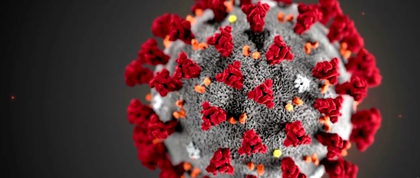
Over the past few weeks, GPH faculty have been inundated with dozens of questions about the coronavirus pandemic: questions about transmission, susceptibility, epidemiology, interventions -- it’s never-ending. And misinformation is almost as prevalent.
As public health students and future leaders, you have a professional duty and moral obligation to stay informed, correct misstatements, and bring the facts and science to others.
As NYU GPH students, people will look up to you and ask, "What do you make of all this?". Are you ready to respond professionally?
Here's the first of several Covid-19 quizzes. Take it yourself, and share it widely.
And please remember: the faculty of GPH are always here to help you understand this pandemic.
Be safe -- Professor Jack Caravanos
How much do you know about COVID-19?Determine if the following statements are true or false. Answers are below.
- The “19” in Covid-19 represents the numerical sequence of this novel virus, meaning it’s the 19th variety within the coronavirus class.
- Covid-19 lasts longest on paper and cardboard.
- During a U. S. Postal Service window transaction, the postal worker is most at risk of acquiring an infection.
- The air in a delivery box should be considered risky, and the box should be opened using gloves and a surgical mask.
- Full strength rubbing (isopropyl) alcohol is equally effective in sanitizing hands and surfaces.
- Soaps react with receptors on the Covid-19 virus and break down their protective membrane.
- Riding the subways is generally low-risk.
- Surgical masks are essentially equivalent to N95 respirators.
- If you can’t find hand sanitizer, you can use diluted chlorine bleach to disinfect your hands.
- Surgical masks are designed to protect the wearer.
- Sweat and bodily excretions from infected patients can contain the coronavirus and infect people.
- Historically, coronaviruses are known for causing the common cold.
- A sneeze is indicative of a possibly Covid-19-infected individual.
- Continuous washing with soap and water can de-fat (dry out) your skin and may produce dermatitis and other skin ailments.
- Wearing a mask while walking the streets of the city is a good way to prevent a Covid-19 infection.
- Coronavirus is soil-borne and can therefore be tracked into a home.
Answers
- FALSE: It refers to the year it was discovered and identified (i.e., 2019).
- FALSE: The half-life longevity on cardboard is about 8.5 hours, with a 97.5% reduction in 12 hours.
- TRUE: The customer sees one person at the post office, but the postal worker is in contact with dozens of people per shift.
- FALSE: Recent data indicates the longevity of the virus in bio-aerosols is short-lived (a half-life of three hours and a 97.5% reduction in seven hours), so the risk is minimal.
- TRUE: All alcohols (methanol, ethanol, isopropanol) are disinfectants. But they must be at least 60 percent or more pure to effectively denature the viral membrane.
- TRUE: The lipid portion of a soap binds with the lipid portion of the viral membrane and breaks it down.
- TRUE: Unless you are standing next to a coughing (and infected) person, the air is unlikely to have free-floating viral particles. And if you don’t touch or hold onto anything, you cannot contaminate your hands.
- FALSE: Only CDC/NIOSH-approved N95 respirators can effectively filter bio-aerosols.
- FALSE: Chlorine bleach is corrosive and should never be used on human tissue.
- FALSE: They are intended to prevent infecting the patient, not the wearer.
- FALSE: It seems that only respiratory secretions contain the virus and can be transmitted.
- TRUE: About 15% of common colds are attributable to coronaviruses.
- FALSE: Sneezing is NOT a symptom, period. However, other coronaviruses do cause rhinitis.
- TRUE: Be smart with washing. Most of the time hand sanitizer, which has moisturizing agents, is a better option.
- FALSE: The virus is not free-floating in city air -- and it’s short lived in air. If you distance yourself from people (6 feet) then you’ll be minimizing your risk.
- FALSE: The virus is zoonotic and NOT at all present in soil. Viruses need a living host to multiply. Continue gardening in peace!